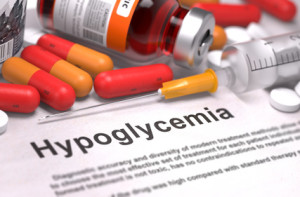Low blood sugar, clinical name hypoglycemia, is a condition in which blood sugar levels in the body fall too low. Generally, a blood sugar level between 80 and 110 milligrams per deciliter is considered to be in normal range. When this level falls below 80, individuals may develop symptoms of low blood sugar. This condition often occurs in people with diabetes, when they try to control high glucose levels and the level falls too low. However, low blood sugar can occur from other causes, such as going for long periods without eating, from certain medications and from specific medical conditions.
Symptoms of Low Blood Sugar
The disturbance in normal blood sugar levels can cause a variety of symptoms, which may be different in each individual. Common symptoms include:
· Extreme hunger
· Nausea
· Sweating
· Shakiness, weakness or nervousness
· Headache
· Rapid heartbeat
· Confusion or concentration problems
Recognizing Low Blood Sugar
Individuals who have been diagnosed with diabetes learn to monitor their blood sugar levels closely. When blood sugar drops below normal levels, they learn to recognize the signs, such as dizziness or nausea. Diabetics often have a glucometer to determine if low blood sugar is the cause. Test strips can also determine if blood sugar levels have dropped too low. They can then take measures to raise their blood sugar to a normal range.
Raising Low Blood Sugar
To quickly raise low blood sugar to a normal level, medical professionals advise consuming one of the following:
· ½ cup orange juice
· ½ cup apple juice
· 1 cup fat-free milk
· 1 small apple
· 3 tablespoons of raisins
· 15 grapes
· 6 large jelly beans
· 1 tablespoon of honey, jam or jelly
· 3 to 4 glucose tablets
If you are diabetic and have frequent bouts of low blood sugar, talk to your physician about changing your medication. If you are not diabetic, adjust your schedule to ensure that you eat on time and see your doctor for a thorough physical to rule out any illness that may be causing the problem.

Is 142 low or high or jus right for blood sugar I’m 34 years old
That is high blood pressure. A lot of factors do have influence on the ideal blood sugar level. While your blood sugar might be too low or too high for a normal blood sugar, factors like exercising or eating do have impact on the ideal blood sugar level
I’ve been eating a low carb, moderate protein, and high-fat diet. I’m 24 hours into a fast and my blood sugar is 63. I’m not diabetic. Is that too low?
yes it is to low cause it is below 80
i test my blood sugar level and it shown 17.0 what is that mean